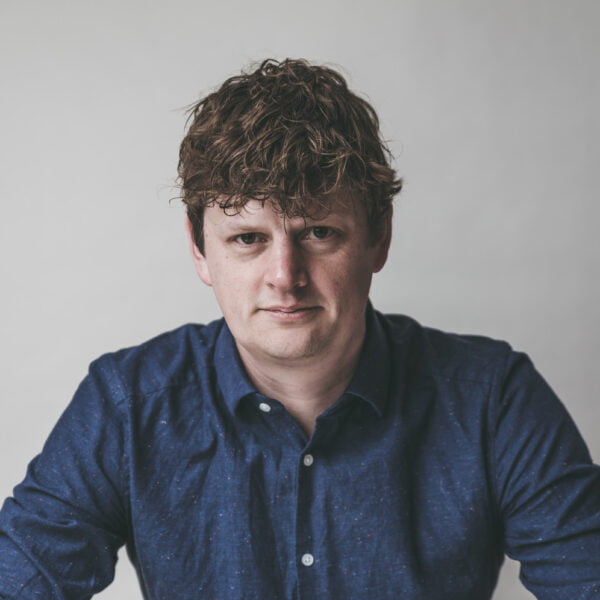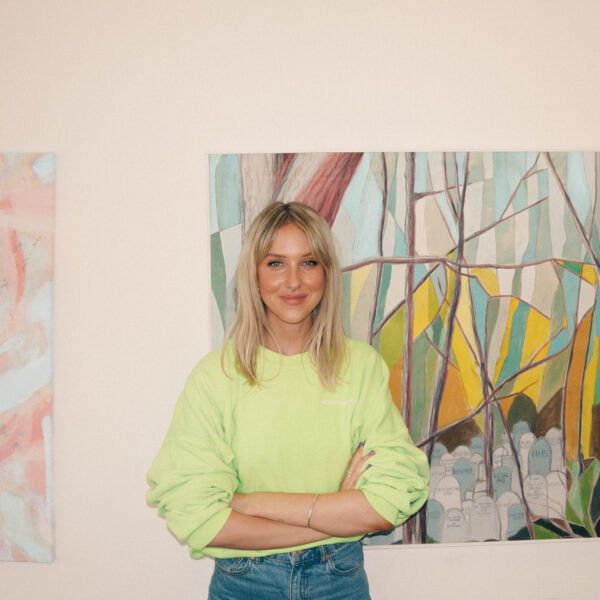
Natasha Collie
Senior Brand Marketing Manager at Penguin Random House UK
At the start of the year, Ladybird Books approached Sonder & Tell with a dream brief. In 2021, a year that’s been particularly challenging for...
In conversation with
Co-Founders at Harris & Hayes

Food is more than fuel. It’s how we sink our teeth into the world around us – showing love, sharing connection and serving ideas. And those ideas move fast. So how can brands satisfy the ever-changing tastes of consumers? For that, we turn to Alexandra Hayes and Lisa Harris, founders of food and drink trend consultancy Harris & Hayes.
They work with big names in the industry to produce insight and future forecasting reports, develop bespoke food trend tours to feed into an interactive ideation pipeline, and run product and menu development. Expect reflections on the future of sustainability, the silver linings of ‘wobbly times’, and where to go when you’re hungry for inspiration.
Alex – Harris & Hayes was born almost five years ago. Lisa and I met through friends in common and every time we saw each other we shared our passion for food. So one day we met for a coffee and that’s how it all began. I come from a food innovation background. I started my career working with Jamie Oliver, after studying a business degree in Italy, which cemented my interest in food. I’m really interested in how we can reshape a more sustainable future via food and drink.
Lisa – That coffee changed our lives! It was the perfect timing as we were looking to reshape our careers in a freelance capacity. I come from an editorial background. I was the head of food for a content marketing agency, especially working for Sainsbury’s, and was later a freelance writer including The Guardian and Time Out. Alex and I are really interested in why consumers’ habits change, and that’s something we help our clients understand too. We want to dive deep into the wider consumer drivers and the trends.
Alex – Definitely out and about. We do our own trend safaris, and also on behalf of our clients, trying new restaurants or the latest new products on shelf. Travelling is key for us too, so we can have a global take on the latest emerging trends. And finally, meeting people within the industry or cross category to make inspirational connections. ‘Getting lost’ in our own vortex, and going with the flow is important in a creative field.
Lisa – We have a huge appetite; we love to eat but we’re also curious to learn more. There’s always something new to try and discover. We’re never not thinking about food, and one thing leads to another. We’re working on a project at the moment, which involves interviewing lots of chefs to understand how they use professional kit and appliances and those meetings spark other ideas. It’s amazing to be connected to these people for work. It’s very organic.
Alex – Some of the best innovation comes out of wobbly times, like Dishpatch. Born out of lockdown, when people couldn’t go out, Dispatch created meal kits in collaboration with chefs and culinary professionals. Even things like meal replacement bars, people think that they’re a new thing but they can actually be traced back to the war. It’s important for us to track where such trends have come from, and where they’re going in the future. The cost of living crisis has inspired innovation in particular categories. We’re seeing a lot of challengers crop up in frozen now for example, because frozen food is inherently nutritious, good value and with less wastage.
Lisa – The cost of living crisis has brought about a huge mental shift. An interesting brand example on these shifts is FreeWater. They claim to be the world’s first free beverage company, because they basically turned the bottle into a billboard. In times like these, people are more conscious about what they consume. Current shortages of eggs or salads make consumers much more aware of the supply chain for example, and the darker side of food production is in the public eye. We’ve actually done an interview for The Grocer about these exact issues.
“When you see things trending cross-category, that’s when you know it’s an actual trend, rather than a fad. Mushrooms, for example, are everywhere.”
Alex – In the last five years we’ve noticed a lot of brands producing free trend reports, which all seem to copy one another. At Harris & Hayes we talk about signals, which can become a trend if they’re identified multiple times in different spaces. It’s bespoke for each client, but tracking these paths is our job as we help brands spot key opportunities before it’s too late.
Lisa – A rising interest in seaweed or watermelon seed snacks, for example, isn’t a trend, it’s a signal. They’re an expression of the sustainability trend rather than the trend itself. When you see things trending cross-category, that’s when you know it’s an actual trend, rather than a fad. Mushrooms, for example, are everywhere. In tea and crisps, but also mushroom leather in high end trainers and Stella McCartney handbags too. It crosses multiple pathways.
Alex – We’re big fans of Wildfarmed. Their collective of farmers produce flour regeneratively and a secondary part of the business model is about passing on that knowledge and education. Their tone really resonates with today’s and tomorrow’s consumers. Natoora is also a great example. They focus on the other benefits of farming regeneratively like radical flavour. This is key if we’re going to get consumers to make the switch. Food needs to genuinely taste better and do us more good, as well as being better for the planet.
Lisa – There’s research that shows regeneratively grown produce is genuinely more nutritious. It’s an exciting time in that respect and we’re seeing big brands collaborating with regen producers to support them and make a bigger impact. For example, M&S partnered with Wildfarmed and Waitrose with Natoora. Brands who take sustainability into their own hands and make meaningful changes are the ones that will make a bigger impact.

Lisa – That appliance project we mentioned has been really interesting, simply because it’s taking us to lots of different areas. It was a really great mixture of interviewing chefs, doing our own desk research, and leading strategy. At Harris & Hayes we’re really strong on distilling all the information and then giving brands a direction.
Alex – To actually have access to go into chef’s kitchens and busy working spaces, and to understand the operations, pressures and opportunities has been a real privilege. It’s such a tough industry and chefs genuinely want to feel listened to. To get that first-hand knowledge on how the hospitality industry is evolving is vital to understand where the gaps are and how to plug them.
Alex – We were reading about a recent trade show in Japan. Japan has such a strong food culture, and we’d love to revisit this part of the world for a fresh global perspective on the latest consumer, market and product trends.
Lisa – The future of sustainability is something we’re really passionate about. Whether we’re working with a challenger brand or a bigger company. It’s all about the connections between flavour, quality ingredients and nutrients. We also love ongoing projects, where we get to give long term insights and see our creative concepts come to life.

Senior Brand Marketing Manager at Penguin Random House UK
At the start of the year, Ladybird Books approached Sonder & Tell with a dream brief. In 2021, a year that’s been particularly challenging for...

Founder Of Simple Politics
Talking about serious issues doesn’t mean defaulting into a serious tone of voice, or using complicated language. If anything, accessibility, clarity and a touch of...

Brand & Community Manager at Homethings
Creating a tone of voice from scratch can be challenging. But a blank slate to work from also mean there’s room for something a bit...

Writer at Sonder & Tell

Founder and Designer at Lydia Bolton